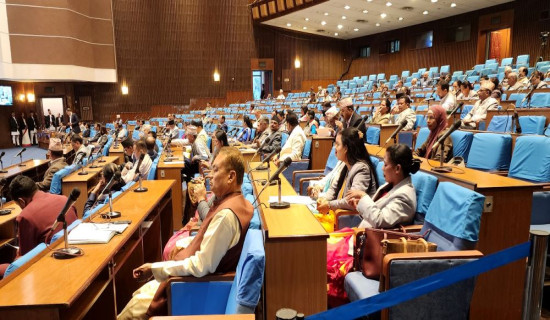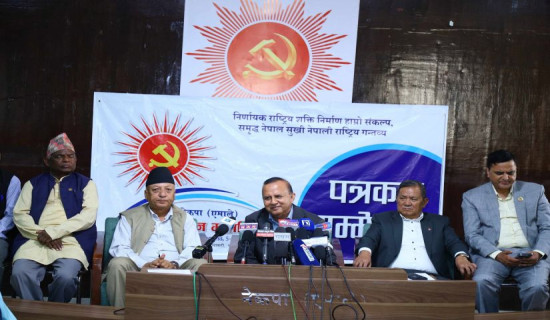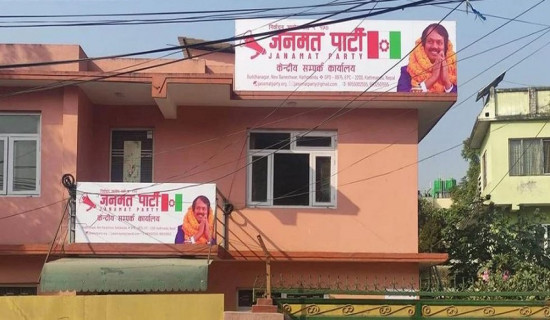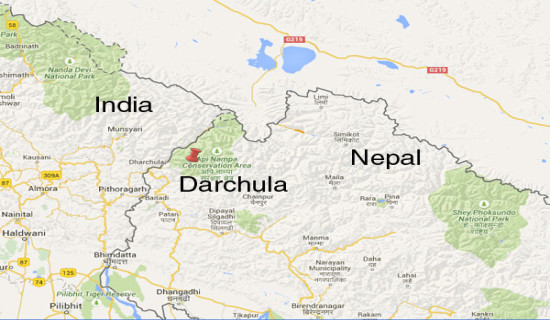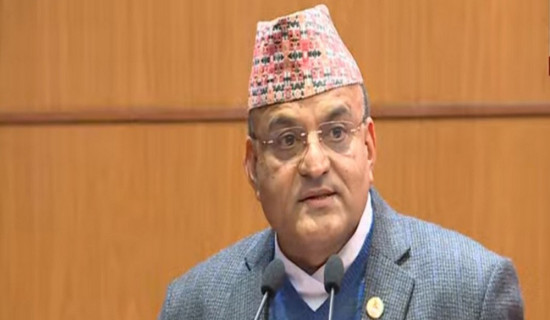- Wednesday, 3 September 2025
Youth-led Ventures Thrive In Birgunj
My recent visit to Birgunj, Nepal’s commercial capital, left me pleasantly surprised. The town was extraordinarily clean compared to my previous visits. Birgunj has always been a city of inspiration — one that fuels Nepal’s economy while being rich in culture, tradition, and literature. The town has produced literary icons like Dhruba Chandra Gautam, whose works are etched into Nepal’s literary history. Though other border towns such as Nepalgunj, Jhapa, Chitwan, and Biratnagar also have thriving industries, Birgunj feels different. Its energy evokes a smaller version of Jamnagar in Gujarat. While Birgunj is not on the same scale, the determination of its people to grow their industries is equally inspiring.
I was there to address the Women’s Conference 2082, hosted by the Birgunj Chamber of Commerce and Industry (BiCCI) on August 30. I had the opportunity to meet women from all walks of life — entrepreneurs, doctors, nurses, journalists, security personnel, office bearers, and homemakers. It was heartening to see 25 women who excelled in their fields being honoured by the former and first female President of Nepal, Bidya Devi Bhandari. This was a stark contrast to my first visit to Birgunj in the mid-1990s, when I hardly encountered a single woman professional. Today, not only have many women broken barriers and achieved success, but many more aspire to join the workforce and contribute to the region’s development.
Gender equality
Young entrepreneur Anup Agrawal remarked that women do not need “empowerment projects” because they already have power within them. What they need, he stressed, is a supportive environment where they can pursue their goals. He emphasised that the era of confining women to their homes is over — they must be given opportunities to express themselves and realise their dreams. His words were a reminder that we need more men like Agrawal, especially from business communities such as the Marwaris, who play a crucial role in Nepal’s commerce and industry. Their commitment can help create a paradigm shift toward gender equality.
Nepal has enacted several laws and programmes promoting equality and equity. However, achieving a truly equitable society remains a distant goal. The focus must now shift to implementation. Men must be included in the process so that girls and women receive the encouragement and safe environment they need — at home and in the community — to pursue their ambitions with confidence. One striking observation in Birgunj was the silent yet substantial role women play in sustaining its economy. Many households have daughters-in-law from Indian cities such as Patna, Gaya, and Kolkata. Married young, these women learned to adapt to new households, new customs, and even a new country. They easily made a foreign country their own.
Their quiet dedication has helped make Birgunj the trading hub it is today — by managing households and supporting family businesses. Yet their contributions have gone unrecognised, both in the local industry and in the national economy. Globally, the “care economy” — unpaid household and caregiving work — remains invisible in Gross Domestic Product (GDP) calculations despite its crucial role in keeping societies functioning. Young entrepreneurs must internalise this reality. Women already possess the skills; they simply need the right environment to expand their potential and receive recognition for their contribution to both the care economy and the national economy.
Birgunj, known as the “Gateway to Nepal,” has long been a key trade route through Raxaul, Bihar. I vividly remember my first visit in the early 1990s as a journalist to attend a code of conduct workshop organised by the Federation of Nepalese Journalists. It was encouraging to see Birgunj’s youth striving for greater achievements and its women determined to pursue their dreams despite challenges. There have been several government initiatives to promote microenterprises run by women. BiCCI, with support from local stakeholders, has been actively supporting informal micro-enterprises through skills development, market linkages, B2B services, and startup support.
According to Global IME Bank data, women entrepreneurs own approximately 30 per cent of Nepal’s MSMEs, registering around 71,000 new businesses annually. These enterprises contribute 22 per cent to GDP and employ nearly 2 million people. Research also shows that women-led MSMEs are about 3 per cent more profitable than male-led ones. The Federation of Women Entrepreneurs’ Associations of Nepal (FWEAN) currently supports around 5,500 entrepreneurs across 74 chapters and aims to expand to all 77 districts by 2027.
Microfinance services
Nepal has a history of providing microfinance services as external funding to women entrepreneurs via the small farmers development movement, Development Banks, Grameen Bikas Banks, saving and credit cooperatives and similar other means. Despite these advances, access to finance remains a challenge, with only 32 per cent of women entrepreneurs able to secure credit. The cleanliness and energy of Birgunj’s youth were truly motivating. For the industry to grow and become sustainable, stakeholders, employees, and households must all be satisfied and empowered.
The key to growth lies in ensuring safety, equal opportunities, and a supportive environment within homes, businesses, and communities. If Birgunj’s youth work together, they can transform the city into not only the “Commercial Capital” of Nepal, but also a model of gender equality and a violence-free zone — a place where every citizen can pursue their dreams in a safe, thriving, and sustainable environment. The government, too, should support and nurture such youth-led initiatives.
(Sharma is a senior journalist and women's rights advocate. namrata1964@yahoo.com, X handle: @NamrataSharmaP)



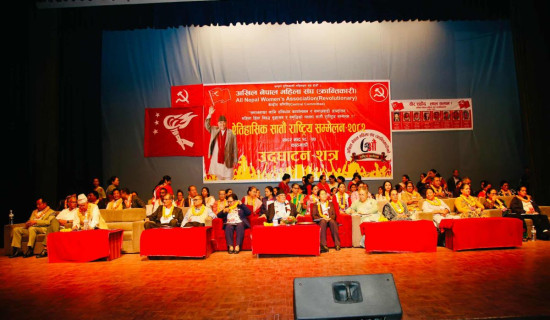
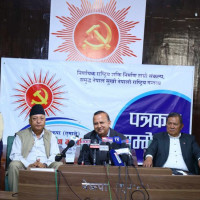
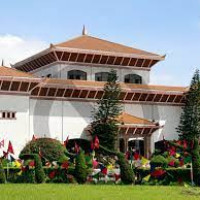


-square-thumb.jpg)
